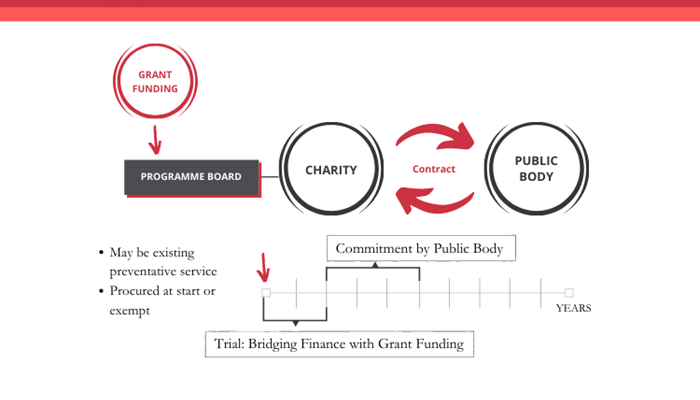The aim of our our Social Bridging Finance (SBF) pilot is to build knowledge around an alternative funding model which brings together a working partnership of public sector, third sector and independent funders. Last month, we shared some of the early findings based on the independent evaluation we have commissioned and now we're delighted to share some of the insights on the model from a public sector perspective.
In the video below, we hear from two of the three local authorities participating in the trial through Kate Rocks, chief social work officer at East Renfrewshire Council and Paul Clancy, executive director of children and families service at Dundee City Council. We also hear from Maureen McKenna, head of education services at Glasgow City Council, where an early iteration of the SBF model had previously been trialled with MCR Pathways.
We hear their insights on the following:
- 0:17-2:02 Reasons for choosing SBF
- 2:04-5:39 How SBF changed the approach to the project
- 5:41-9:36 Impact on relationships
- 9:38-12:55 Potential of SBF
Social Bridging Finance: An Overview
SBF is currently being trialled by three demonstration projects based in Dundee, East Renfrewshire and South Ayrshire. As a funding approach, SBF aims to ensure the long-term sustainability of third sector services which can evidence success by enabling public services to innovate and move resources towards preventative services and measures.
The initial demonstration phase of the projects have been grant funded through an SBF contract, which underpins and sets out success criteria as agreed by both partners prior to the project’s launch. Should the delivery organisation meet these criteria, the public sector organisation is then committed to sustaining the service for the long-term.
As part of our commitment to becoming a learning organisation, we commissioned Iconic and Glasgow Caledonian University to carry out an evaluation of the model’s pilot.


